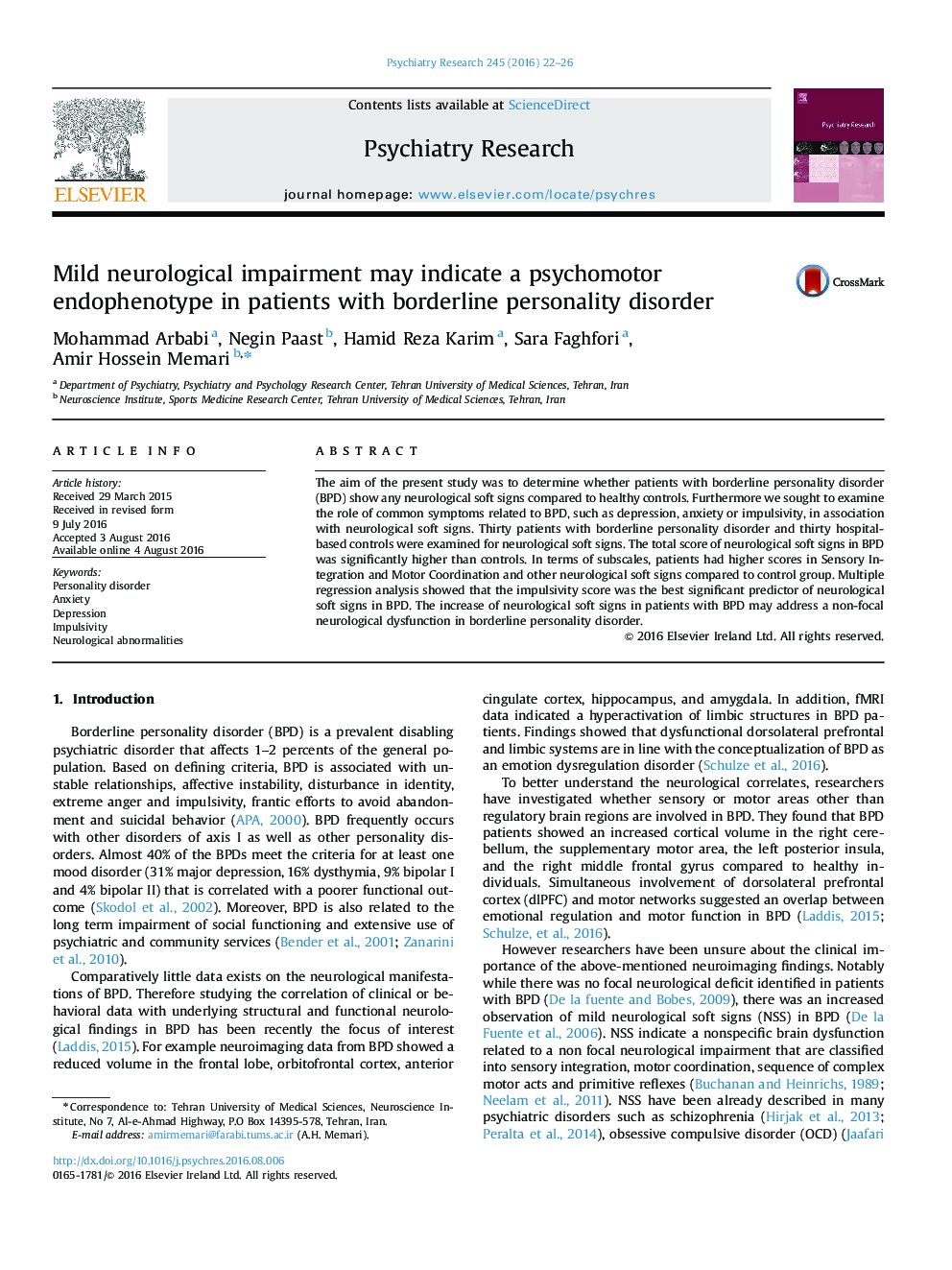| Article ID | Journal | Published Year | Pages | File Type |
|---|---|---|---|---|
| 6812264 | Psychiatry Research | 2016 | 5 Pages |
Abstract
The aim of the present study was to determine whether patients with borderline personality disorder (BPD) show any neurological soft signs compared to healthy controls. Furthermore we sought to examine the role of common symptoms related to BPD, such as depression, anxiety or impulsivity, in association with neurological soft signs. Thirty patients with borderline personality disorder and thirty hospital-based controls were examined for neurological soft signs. The total score of neurological soft signs in BPD was significantly higher than controls. In terms of subscales, patients had higher scores in Sensory Integration and Motor Coordination and other neurological soft signs compared to control group. Multiple regression analysis showed that the impulsivity score was the best significant predictor of neurological soft signs in BPD. The increase of neurological soft signs in patients with BPD may address a non-focal neurological dysfunction in borderline personality disorder.
Related Topics
Life Sciences
Neuroscience
Biological Psychiatry
Authors
Mohammad Arbabi, Negin Paast, Hamid Reza Karim, Sara Faghfori, Amir Hossein Memari,
